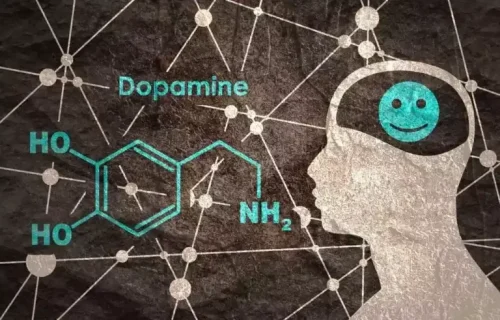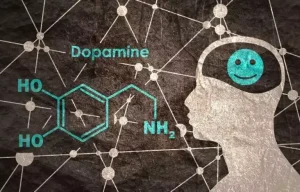
When you’re allergic to alcohol or have an intolerance to it, your body cannot produce the enzymes needed to break down the toxins in alcohol. As the heart rhythm becomes too fast and irregular, the blood vessels in the skin widen. During vasodilation, the skin becomes flushed due to dilated blood vessels, and severe sweating occurs. No matter how much alcohol you drink, you may experience night sweats when you go to sleep. Heavy drinking results in severe intoxication, which may cause vomiting, upset stomach, slurred speech, coordination problems, and severe sweating.
- Besides this, if you’re drinking while seated in a crowded, poorly ventilated place, you might also feel overheated.
- Chronic heavy drinking can cause alcoholic hepatitis, which is the inflammation of your liver.
- Well, alcohol intake may lead to night sweats by speeding up your heart rate and widening your blood vessels, triggering the release of perspiration.
- Moreover, persistent overheating can lead to a reduction in overall sleep duration.
Understand Alcohol Withdrawal Seizure Treatment & Prevention
This mix-up can cause us to feel cold even when the surroundings are warm. Have you ever noticed that after enjoying a couple of drinks, you suddenly find yourself feeling chilled and shivery, even in a warm room? It’s a common experience that many people have had, and it makes them wonder why alcohol has this paradoxical effect on their bodies. There you have it – we’ve answered the question – why does alcohol make you hot? Some people suffer from Asian flush reaction – and are incapable of properly metabolizing alcohol.

The Link Between Alcohol and Night Sweats
- While still mostly positive, other research has had mixed results and may be slightly biased.
- Cutting back on ultra-processed foods is beneficial for overall health and may help you get a better night’s sleep.
- As a depressant, alcohol may cause changes in the brain chemistry that can increase anxiety and take a further emotional toll.
- Wearing supportive clothing, such as tights or compression stockings, can also reduce discomfort and help the swelling decrease.
If you are struggling with an alcohol use disorder, ask your doctor about treatment options such as counseling or medication-assisted treatment. It’s essential to distinguish alcohol intolerance from addiction, as the former is a response to the body’s difficulty in breaking down alcohol rather than a psychological dependency. If this is the case, alcohol detox and addiction treatment will be very helpful.

Symptoms of Alcohol Withdrawal: What Should You Look For?
If swelling during pregnancy comes on suddenly and is severe, it could be a sign of preeclampsia. Wearing supportive clothing, such as tights or compression stockings, can also reduce discomfort and help the swelling decrease. To treat a foot or ankle injury, a person should elevate the foot when possible and avoid bearing weight on the affected leg. If the swelling does not drug addiction treatment improve, a person should talk with their doctor to check for any underlying causes.
Kidney Disease and Sleep Problems: Unraveling the Connection

While there are various causes for night sweats, such as menopause, infections, or certain medications, alcohol consumption is a particularly notable trigger. Alcohol-induced night sweats are not uncommon in those who drink regularly or excessively. Shakiness, dizziness, heart palpitations, nausea, headaches, or fatigue may also result.

If these strategies don’t ease your troubles—or if they reveal a bigger problem—professional help is crucial. West Georgia Wellness Center provides the kind of in-depth assistance needed to help individuals achieve meaningful recovery. Sometimes, does alcohol make you hot at night the best decision is to step outside your comfort zone and seek formal treatment.
- West Georgia Wellness Center provides the kind of in-depth assistance needed to help individuals achieve meaningful recovery.
- It centers on being more conscious and thoughtful of how much, how often, and why you drink.
- With more night-time wakings or the inability to fall asleep, it can leave you over-tired the next day and more prone to irritability or impaired thinking.
But alcohol can make your chances of a good night’s sleep even slimmer. Not only is alcohol a diuretic – causing you to need the toilet more – it also affects your circadian rhythm and hinders your ability to achieve a deep sleep. Our state-specific resource guides offer a comprehensive overview of drug and alcohol addiction treatment options available in your area.
You’re still smoking? Yes, this affects your hearing too

As a result, their body temperature rises to uncomfortable levels. While this can be annoying and uncomfortable, it is typically not cause for concern. If you experience these types of symptoms without the extreme severity, it’s like that you’re dealing with alcohol intolerance, or alcohol flush reaction. Recovery from alcohol addiction is a long-term process that doesn’t end after detox or a stay in a residential treatment facility.
This is a really exothermic process which means it produces a lot of heat. A person may not experience any symptoms or signs of liver damage or scarring, which people call cirrhosis, until the liver is badly damaged. Those who believe they have AUD or alcohol intolerance may wish to speak with their doctor.
- As your body processes the alcohol, and the night goes on, alcohol actually disrupts your sleep.
- Alcohol is a diuretic, which means it increases urine production and can lead to dehydration.
- The skin usually feels hot to the touch and can be bright red – not exactly the look you’d want out at the bar.
- You might think that a drink before bedtime would soothe your nerves.
- Nausea, a feeling of sickness or an inclination to vomit, may also be present, further contributing to the distressing nature of the condition.
Additionally, having a heavy, fatty meal later at night may affect your ability to fall asleep. Therefore, if you experience heartburn after eating spicy foods or you have acid reflux, you may want to steer clear of spicy foods before bed. However, caffeine more negatively affected the participants who slept during the day. Only this group experienced decreased sleep duration and decreased deep REM sleep after consuming caffeine (7). If a person experiences any of the above symptoms, they should seek immediate medical attention. Swelling of the feet could be a sign of heart disease or heart failure.
